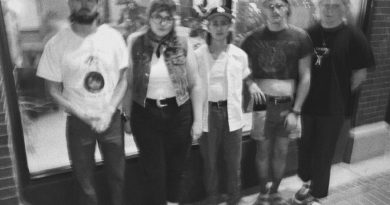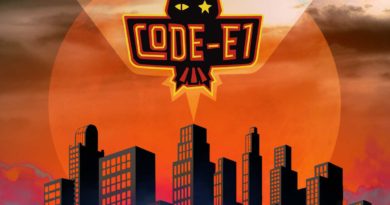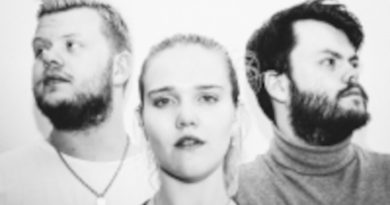A Chat with Ian Roland (15.03.23)
Since 2015, singer-songwriter Ian Roland and composer Simon Yapp have been sharing their unique blend of contemporary folk with audiences across the globe. We speak with Roland about their album The Wood Wide Web, why he chose to be a musician, future plans and much more!
OSR: Why did you choose to pursue a career in music?
Roland: The song ‘Don’t Bang The Drum’ by The Waterboys sums up why I dedicate a lot of my time to music.
OSR: What inspires you to make music?
Roland: My old apple tree, my Copper Beech tree hedge; trees in general. The South Downs National Park. Butterflies, rainbows, wildflowers. My children and their future.
OSR: What can you tell us about your album The Wood Wide Web? Is there a backstory or theme?
Roland: The Wood Wide Web is a new album of eleven songs I have written during the last two and a bit years. I have arranged and produced the songs with violinist and gigging partner, Simon Yapp. This album project started in Spring 2020, following the release of my album, Double Rainbow, subsequently published by production music company, Indiesonics.
The Wood Wide Web album has experienced various waves of the Covid pandemic and rollout of vaccines; three UK Conservative Prime Ministers, an ongoing cost-of-living crisis, and the climate crisis deepening as governments around the world fail to limit global warming to 1.5 degrees Celsius. Conceived and developed against this backdrop, the album highlights the power of nature to rejuvenate, sustain and enrich all life, including our own, if only we gave it the chance to do so.
OSR: Which are your favourite songs on The Wood Wide Web?
Roland: Particular favourites include:
‘Gold In The Dust’
A song written as if from the perspective of a tree; essential to the continued existence of life and so more precious than gold.
Giant!
Giant corporate entities, like oil companies, over-shadow our lives and govern our actions placing a limitation upon how our lives can be lived.
Wildflowers
During the first lockdown, due to the COVID-19 pandemic in 2020, my children and I decided to plant an area of wildflowers in our garden. Science was linking the pandemic with the years of exploitation and destruction of the natural world, and to try to combat our sense of the overwhelming helplessness of this situation we planted wildflowers and over the coming months watched the bees and butterflies visit.
Nothing Could Grow There
The song was written during the first COVID-19 pandemic lockdown in the UK in June 2020 and reflects the fear, isolation and concerns for survival felt across the world during that time and still ongoing today. The root causes of the pandemic form the basis of the song: the destruction of the natural world; biodiversity loss; the exponential rise in consumption over recent decades; the fallout from the pandemic in terms of economic hardship, loneliness, and separation. It is a cry echoing the cries of all of us and a plea for transformative change to rethink our relationship with nature and each other. It is a plea for the need to move away from the greed of capitalism that has brought us to this cliff edge.
OSR: What do you hope people take from your music?
Roland: The indescribable beauty of the natural world is a theme running through the album and I hope listeners can feel that energy within themselves when they listen to the songs.
OSR: What does music mean to you?
Roland: Music is life, really.
OSR: The music industry is a difficult one to crack, so to speak. What advice do you have for new artists?
Roland: Focus on playing live and trying to communicate with an audience.
OSR: What are the best and worst pieces of advice you have ever received?
Roland: Worst advice: Wearing a leather jacket will help you sell music.
Best advice: Just think what you could achieve if you turned all that negativity into positivity.
OSR: What makes your music unique?
Roland: It’s important to try to be unique but not so unique that no one wants to listen to you.
OSR: Do you have future plans as a musician?
Roland: To continue to do what I am doing musically because it makes me happy.
Many thanks to Ian Roland for speaking with us. For more from Ian Roland, check out his official website, Facebook, Twitter, Instagram and Spotify.
This artist was discovered via Musosoup #sustainablecurator


